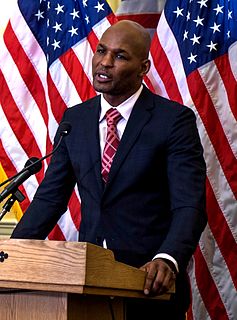A Quote by Thomas Reid
There is no greater impediment to the advancement of knowledge than the ambiguity of words. To this chiefly it is owing that we find sects and parties in most branches of science [and politics]; and disputes that are carried on from age to age, without being brought to issue.
Related Quotes
We find sects and parties in most branches of science; and disputes which are carried on from age to age, without being brought to an issue. Sophistry has been more effectually excluded from mathematics and natural philosophy than from other sciences. In mathematics it had no place from the beginning; mathematicians having had the wisdom to define accurately the terms they use, and to lay down, as axioms, the first principles on which their reasoning is grounded. Accordingly, we find no parties among mathematicians, and hardly any disputes.
Science and religion...are friends, not foes, in the common quest for knowledge. Some people may find this surprising, for there's a feeling throughout our society that religious belief is outmoded, or downright impossible, in a scientific age. I don't agree. In fact, I'd go so far as to say that if people in this so-called 'scientific age' knew a bit more about science than many of them actually do, they'd find it easier to share my views.
The law is more easily understood by few than many words. For all words are subject to ambiguity, and therefore multiplication of words in the body of the law is multiplication of ambiguity. Besides, it seems to imply (by too much diligence) that whosoever can evade the words is without the compass of the law.
I regret exceedingly that the disputes between the protestants and Roman Catholics should be carried to the serious alarming height mentioned in your letters. Religious controversies are always productive of more acrimony and irreconcilable hatreds than those which spring from any other cause; and I was not without hopes that the enlightened and liberal policy of the present age would have put an effectual stop to contentions of this kind.
More than ever before, in our country, this is the age of the individual. Endowed with the accumulated knowledge of centuries, armed with all the instruments of modern science, he is still assured personal freedom and wide avenues of expression so that he may win for himself, his family and his country greater material comfort, ease and happiness; greater spiritual satisfaction and contentment.
Myths, whether in written or visual form, serve a vital role of asking unanswerable questions and providing unquestionable answers. Most of us, most of the time, have a low tolerance for ambiguity and uncertainty. We want to reduce the cognitive dissonance of not knowing by filling the gaps with answers. Traditionally, religious myths have served that role, but today — the age of science — science fiction is our mythology.
For most of human history, we could only watch, like bystanders, the beautiful dance of Nature. But today, we are on the cusp of an epoch-making transition, from being passive observers of Nature to being active choreographers of Nature. The Age of Discovery in science is coming to a close, opening up an Age of Mastery.
By the worldly standards of public life, all scholars in their work are of course oddly virtuous. They do not make wild claims, they do not cheat, they do not try to persuade at any cost, they appeal neither to prejudice nor to authority, they are often frank about their ignorance, their disputes are fairly decorous, they do not confuse what is being argued with race, politics, sex or age, they listen patiently to the young and to the old who both know everything. These are the general virtues of scholarship, and they are peculiarly the virtues of science.
At present, when the prevailing forms of society have become hindrances to the free expression of human powers, it is precisely the abstract branches of science, mathematics and theoretical physics, which ... offer a less distorted form of knowledge than other branches of science which are interwoven with the pattern of daily life, and the practicality of which seemingly testifies to their realistic character.
And as to the Cares, they are chiefly what attend the bringing up of Children; and I would ask any Man who has experienced it, if they are not the most delightful Cares in the World; and if from that Particular alone, he does not find the Bliss of a double State much greater, instead of being less than he expected.







































